Search
Remove Ads
Advertisement
Summary 
Loading AI-generated summary based on World History Encyclopedia articles ...
Search Results

Definition
Mesopotamia
Mesopotamia (from the Greek, meaning 'between two rivers') was an ancient region located in the eastern Mediterranean bounded in the northeast by the Zagros Mountains and in the southeast by the Arabian Plateau, corresponding to modern-day...

Article
Mesopotamia: The Rise of the Cities
Once upon a time, in the land known as Sumer, the people built a temple to their god who had conquered the forces of chaos and brought order to the world. They built this temple at a place called Eridu, which was “one of the most southerly...
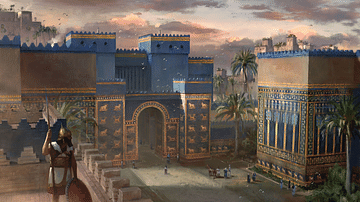
Lesson Pack
Mesopotamia: Government & Religion
This lesson pack on government and religion in ancient Mesopotamia includes the following content: Three Lesson Plans Rise of City States Temples & Divine Kingship Code of Hammurabi Additional Materials Open Questions / Essay Questions...
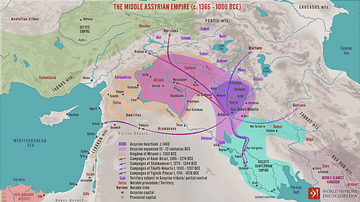
Lesson Pack
Mesopotamia: Empires & Warfare
This lesson pack on empires and warfare in ancient Mesopotamia includes the following content: Two Lesson Plans Assyrian & Akkadian Empires Mesopotamian Warfare Additional Materials Open Questions / Essay Questions Quiz Questions...
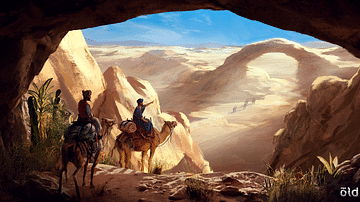
Lesson Pack
Mesopotamia: Geography, Economy & Trade
This lesson pack on geography, economy and trade in ancient Mesopotamia includes the following content: Lesson Plans Mesopotamia's Geography Resources & Trade Additional Materials Open Questions / Essay Questions Quiz Questions...
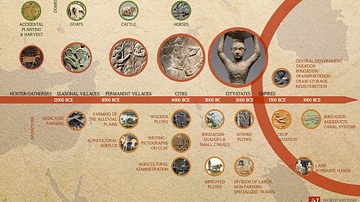
Lesson Pack
Mesopotamia: Innovations & Agriculture
This lesson pack on innovations and agriculture in ancient Mesopotamia includes the following content: Two Lesson Plans The Wheel & Advancements in Agriculture Cuneiform, Literature & Libraries Additional Materials Open Questions...
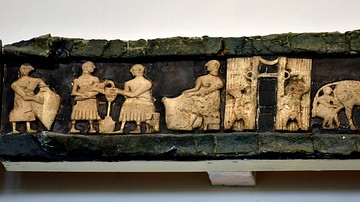
Lesson Pack
Mesopotamia: Daily Life
This lesson pack on daily life in ancient Mesopotamia includes the following content: Three Lesson Plans Social Classes Food, Fashion & Social Events The Family Unit Additional Materials Open Questions / Essay Questions Quiz Questions...

Article
Daily Life in Ancient Mesopotamia
Daily life in ancient Mesopotamia cannot be described in the same way one would describe life in ancient Rome or Greece. Mesopotamia was never a single, unified civilization, not even under the Akkadian Empire of Sargon of Akkad (the Great...
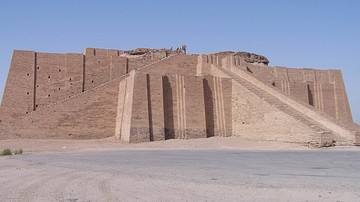
Article
Ten Ancient Mesopotamia Facts You Need to Know
Mesopotamia is the ancient Greek name (meaning “the land between two rivers”, the Tigris and Euphrates) for the region corresponding to modern-day Iraq and parts of Iran, Syria, and Turkey. It is considered the “cradle of civilization” for...

Collection
Mesopotamia: Agriculture & Innovations
Ancient Mesopotamia, located in the Fertile Crescent between the Tigris and Euphrates rivers, witnessed the emergence of cities and empires primarily due to the vital role of agriculture. The rich alluvial soil and access to water sources...